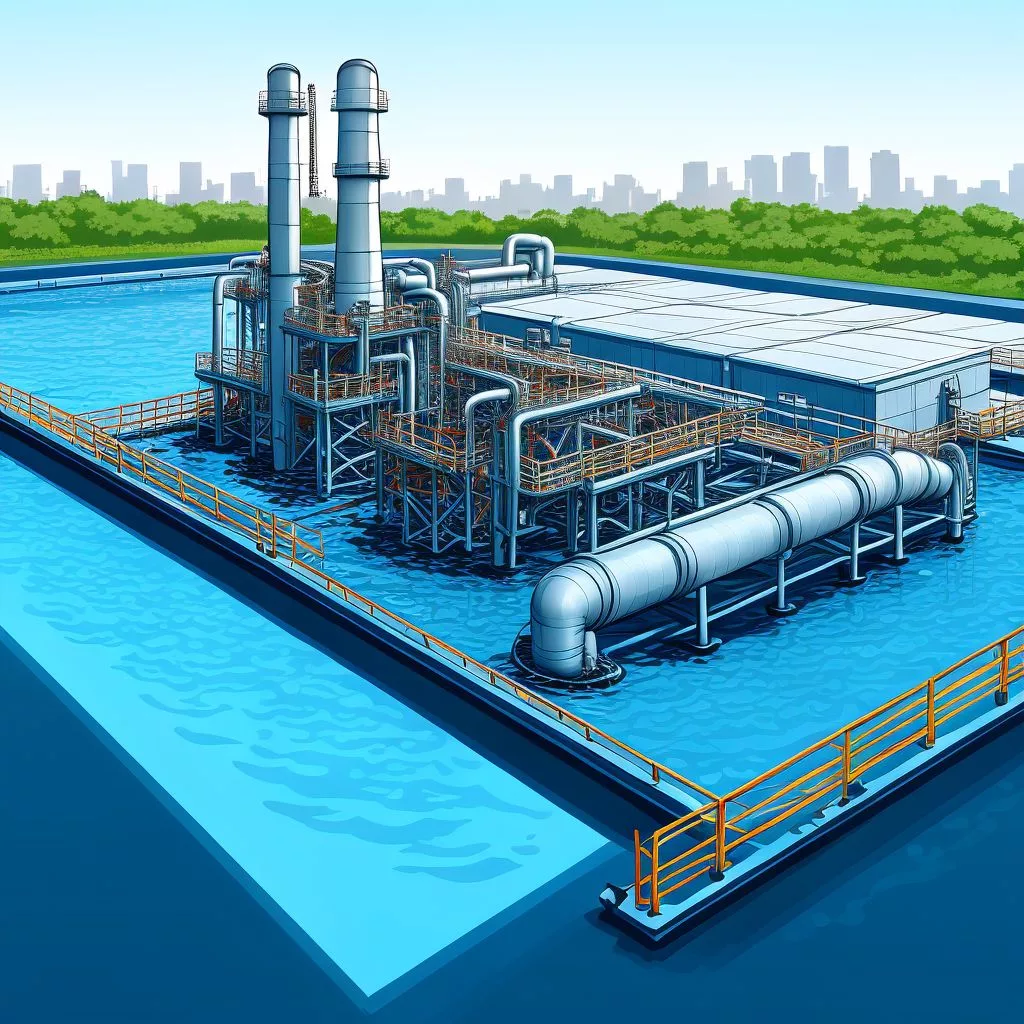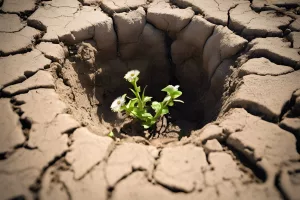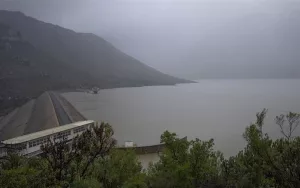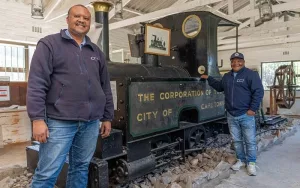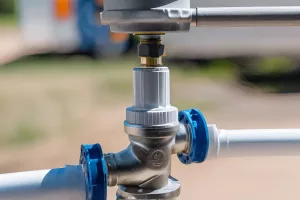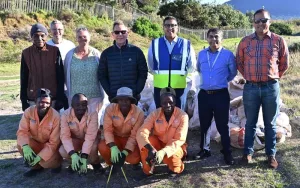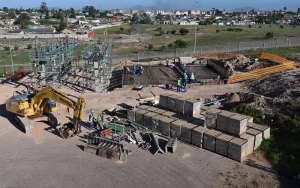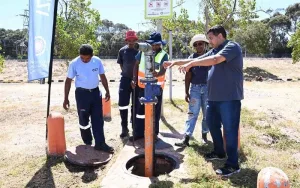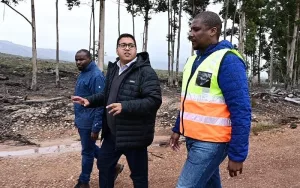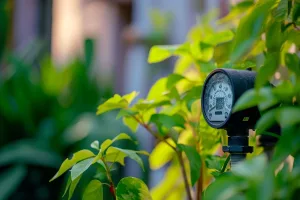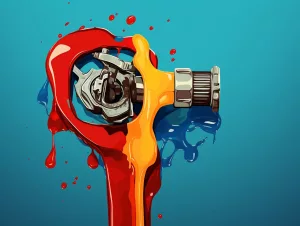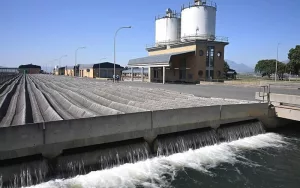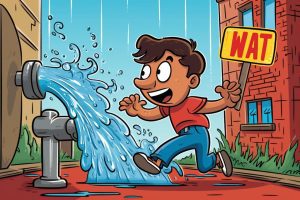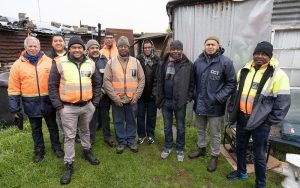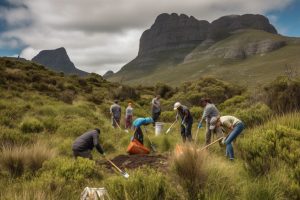Cape Town is getting ready for some important water maintenance that might cause temporary disruptions. Residents are encouraged to store water in clean containers and use less water for things like showers and washing. The Blackheath Water Treatment Plant will be undergoing annual maintenance, which means there will be less drinking water available for a short time. It’s important for everyone to work together to save water and stay informed about any changes. By taking these simple steps, the community can help ensure that everyone has enough water during this time.
Johannesburg faces a serious water crisis, with planned outages in early October for crucial repairs to the Honeydew reservoir pipe. This shutdown from 8 AM to 8 PM will affect many neighborhoods but is necessary to ensure better water service in the future. To tackle the high demand and waste, Rand Water has also introduced Level 1 restrictions, urging residents to conserve water by limiting gardening and cleaning activities during the day. The community is stepping up, sharing tips on saving water and coming together for local initiatives, showing that everyone can play a part in protecting this precious resource.
Cape Town’s dams have exceeded 100% capacity, bringing a wave of comfort to its inhabitants. The extra water is a result of water cascading over the dam’s spillways, providing an ephemeral reservoir of water for rivers downstream. While the fixed baseline fee for water supply remains constant, the usagebased fee may increase to recoup expenditures associated with delivering trustworthy water services. Cape Town is investing in desalination, groundwater systems, and reuse, and aims to amplify water supply by an additional 300 million litres of new water per day by 2030 to ensure future water availability.
The Woodhead Dam Museum in Cape Town is a historical museum that takes visitors on a journey through time to learn about the city’s water supply. It offers a collection of specialized equipment and artifacts, including a steam train, hand tools, instruments, and flow measuring devices. Visitors can explore the rich 127year history of the dam and its complex construction process. The museum serves as a visual record of the City’s water heritage and highlights the urgency of water conservation.
The Water System Maintenance and Upgrade Program is an important initiative led by the Water and Sanitation Directorate of our city. It includes planned works such as zeropressure tests and conditional assessments, maintenance activities, and infrastructure upgrades aimed at ensuring future water supply continuity and reducing water waste. Although these works may cause temporary inconvenience, they are being performed for our welfare and sustainability. Residents are encouraged to store sufficient water in clean, sealed containers and keep their taps shut during the disruptions.
A Testament to Teamwork: The Hout Bay Rivers Catchment Forum’s Crusade for Water Conservation
The Hout Bay Rivers Catchment Forum is a shining example of community collaboration and teamwork. They work towards improving the health of the catchment area and conserving water by fostering cooperation among various stakeholders. In addition to monitoring and reporting pollution, the forum also provides valuable strategic contributions to find solutions. Their combined efforts with the City have resulted in the creation of the Hout Bay Pollution Abatement Strategy and Action Plan, which has already shown promising results in improving water quality. Friends of the Rivers of Hout Bay also play a vital role in eliminating litter and waste from the river, providing employment to locals and promoting sustainability. Overall, the HBRCF’s journey is one of collaboration, persistence, and sustainable solutions that can inspire other communities to make a difference.
Cape Town’s TER Scottsdene Pump Station is a groundbreaking project aimed at increasing the availability of treated effluent and reducing the city’s reliance on potable water supplies. It plays a crucial dual role, increasing the availability of treated effluent and significantly reducing reliance on potable water supplies. The project symbolizes Cape Town’s unwavering dedication to sustainable water management and becoming a waterconscious city.
Cape Town is taking bold and proactive steps towards a sustainable water future by promoting the use of treated effluent as a substitute for potable water in nonconsumable contexts. With over 330 connections across the city, the treated effluent infrastructure is promoting sustainable and practical water consumption. The city is leading by example, utilizing treated effluent to irrigate its parks and recreational facilities, and is urging various sectors to transition to this resource to contribute towards water conservation.
In Cape Town, there is a battle against invasive plant species that consume 55 billion litres of water annually. The Water and Sanitation Directorate of the City of Cape Town and the Greater Cape Town Water Fund are working together to eradicate these plants and have already recouped 16.1 billion litres of water through removal efforts. This initiative has also created 787 green jobs and employed 151 specialized highangle technicians, while contributing to the city’s water strategy and longterm New Water Programme for a sustainable future.
Cape Town is hosting an international conference on advanced water metering technologies, showcasing the city’s commitment to implementing innovative water management solutions. The city has invested R25 million in smart water metering technology, which allows customers to monitor their water consumption and reduce wastage while enabling the city to become a watersensitive city. Through an ambitious 15year expenditure plan exceeding R5 billion, Cape Town aims to implement smart meters citywide, promoting sustainable water management and offering an inspiring example for cities globally.
Cape Town is urging its citizens to conserve water as summer approaches, calling for prompt fixing of leaks, compliance with regulations, and thoughtful water use. The city aims to keep water consumption below 950 million liters per day and promote communal responsibility for yearround commitment to responsible water usage. The city is also working on its New Water Programme to incorporate an additional 300 million liters of water per day into the system by 2030, with initiatives such as leak detection, pipe replacement, and pressure management.
Cape Town’s Water and Sanitation Directorate has been recognized as the secondbest water services provider in South Africa, securing the prestigious Blue Drop status for the year 2023. The city’s water conservation and demand management performance have also been commended. At the national Blue and No Drop awards event, Cape Town won several awards, including second place for water conservation and demand management performance, and a commendation for the Faure Water Treatment Plant. The city’s dedication to water quality and preservation is an ongoing journey towards surpassing expectations and serving as a luminary example for the world.
KwaZuluNatal, a coastal province in South Africa, has been successful in maintaining stable dam levels throughout the winter season. This accomplishment is a testament to the province’s commitment to ensuring a consistent water supply and promoting responsible water usage. This article provides an overview of the current situation of dam levels in KwaZuluNatal and emphasizes the importance of water conservation measures.
Mina Guli, a global leader, entrepreneur, and adventurer, has made significant strides in raising awareness about water conservation. Her passion for solving the water crisis began when she witnessed the devastating effects of water overconsumption on the banks of the Orange River in the Richtersveld. Since then, she has devoted her life to finding solutions to this pressing issue.
Water conservation is a significant issue worldwide and has become a local concern for residents of a particular city. The high cost of repairing water leaks leaves many indigent citizens unable to maintain their properties, leading to excessive water consumption. To address this problem, city officials have launched an initiative to assist indigent residents in repairing water leaks and reducing water usage.
Cape Town has been a leader in environmental conservation and sustainability for years. One of its most remarkable initiatives is the partnership between the City of Cape Town’s Water and Sanitation Directorate and the Greater Cape Town Water Fund. Together, they have made remarkable strides in eradicating nonindigenous plants that deplete the region’s water resources.

